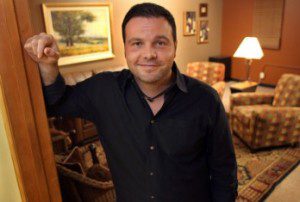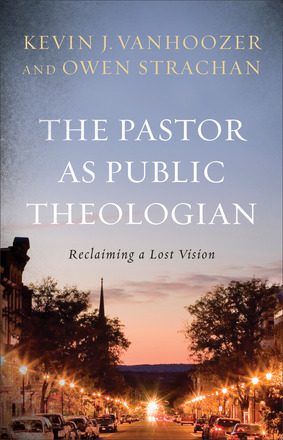 Some of you have been following the events related to Mark Driscoll’s publishing plan. It’s been a winding affair, but long story short, according to Warren Cole Smith of World Mars Hill Church essentially bought a best-seller spot for a recent Driscoll book. It was found out, controversy ensued (on the blogosphere, of all places), and Driscoll publicly issued a statement of repentance related not only to book-writing but his general demeanor and leadership.
Some of you have been following the events related to Mark Driscoll’s publishing plan. It’s been a winding affair, but long story short, according to Warren Cole Smith of World Mars Hill Church essentially bought a best-seller spot for a recent Driscoll book. It was found out, controversy ensued (on the blogosphere, of all places), and Driscoll publicly issued a statement of repentance related not only to book-writing but his general demeanor and leadership.
Ray Ortlund just wrote up a short blog post on Driscoll’s repentance that you should read. Here’s a swatch:
[Driscoll] owned up. And that’s amazing. Not that he did so. I wasn’t surprised, because I know him. What’s amazing is not how often he repents but how rarely other Christian leaders repent.
How does every Christian start out? In repentance. We finally admit that we’ve been completely wrong about everything every moment of every day throughout our entire lives, because we’ve been wrong about God, and God is omni-relevant to us at every level of our beings all the time. But from then on, for too many of us, we’re never wrong again. That’s amazing. The first of Martin Luther’s 95 Theses was, “When our Lord and Master Jesus Christ said ‘Repent,’ he intended that the entire life of believers should be repentance.”
In a few short paragraphs, Ray says a great deal that we need to hear. He is surely right that our evangelical world could use more of a culture of humility. Too often, Christian leaders make the tragic worldly mistake of thinking that admitting weakness will be taken as a sign of deficiency. In reality, it is the opposite. Repentance when it is called for actually encourages the Christian church, because the church is a family united by the desolation of repentance.
I wrote about the power of repentance here.
It seems that there is a good deal for Mars Hill Church, Driscoll, and others to sort out. It is never the case that repentance, after all, is merely a one-shot deal. It must not be a beautiful wave caught by a camera. It must have many ripples. It must break on the shore, over and over again. It must result in change where it is needed. I know nothing of the affairs cataloged online, but I do hope that the healthy patterns Driscoll indicates he wants to put in place are indeed systematized by the Holy Spirit. We are all weak before God, and we need help. The response of Grace Driscoll, Mark’s wife, surely makes it sound like Mark is hitting his marks thus far.
I have little appetite to engage in the back-and-forth of Internet controversializing, pro-Driscoll and anti-Driscoll, that is now a spectator sport. But I will say this: I have family and friends at MHC. I have heard and seen firsthand of the powerful work God has done through Driscoll and the church. I know that MHC has been a great force for the gospel in Seattle and the pagan Northwest. I know people who have been profoundly affected by the church and its biblical preaching and teaching, doctrine that many folks in the region deeply dislike and actively oppose. I am grateful to God for using MHC in these ways, blessing this church so that it serves up great heaping spoonfuls of biblical goodness. I hope that the Lord continues to do so and have every reason to believe that he will.
In sum, I take Driscoll’s public repentance as genuine, commendable, and personally instructive. If a leader of his gifting can act in this way, surely a little over-opinionated tad-pole like me should strive for the same.
****************
Let me transition slightly to one related comment. (Trigger: church polity.)
It strikes me that we’re at a critical moment in conservative evangelical life. We’ve seen a “boom” season in recent decades. The gospel-centered movement has exploded and gone all over the world, as John Piper recently said. We’ve seen some of our major leaders scramble in the face of God-given explosive growth to know how to steward this growth. A whole methodology has cropped up as an answer to this real question (a great one to have to ask!). I wonder, though, if we now can step back a bit and think together about church polity and ministry methodology.
The “celebrity pastor” criticism is overblown, but it does land on this matter. Too many of us are now familiar with a methodology that tends to remove close pastoral accountability and connection between shepherds and the flock. This is a serious problem. We need to collectively think hard about what the Lord might be showing us. Many young and restless types hunger for globe-stretching, campus-multiplying ministries of the kind of our beloved leaders. I wonder, though, if the old ways might be commending themselves afresh in our day.
Here’s what I mean. If we’re hearing from super-energetic, remarkably-gifted individuals like Mark Driscoll that super-complex ministry is indeed as demanding, exhausting, and hard as it might seem, perhaps we should seek out simpler models of ministry. Perhaps we should think once more of the simple, humble model of the local church as being led by a body of elders. These leaders do not oversee multiple campuses. They are not elevated as a kind of “super board to manage other boards.” They simply oversee one church. At this church, they do their darndest to know their people, to keep watch over their souls, and to lead them in soul-delighting worship of the holy Trinity.
If God gives growth–either explosive or non-explosive–the church seeks to plant other churches, an endeavor that is by all accounts not easy but does seem less taxing on the already-taxed staff.
I have not given a massive exegetical argument here. In fact, I think that one of the strongest arguments one can make for congregational polity is the pragmatic one. From my limited angle, multi-site polity seems to burn through a good number of its leaders. It seems to leave them exhausted. It has a tendency to disconnect pastor from the people. In at least a number of cases, it seems to sacrifice the simple beauty of biblical polity for a many-sided complexity that debuts as a well-intended solution and ends up an unexpected task-master.
I am not so much speaking here to established churches and pastors. I am thinking more of the students I help in a small way to train. I think there should be a part of us that observes this cluster of Driscoll-related events and thinks, “Wow. I naturally want what he has, but if he is telling us all that he’s had a hard road, I should probably not thirst for that.” And then perhaps we could study the theological area known to us as–super-exciting terminology alert–church government. Then we might add on a bit of historical study to boot. Then we might find ourselves saying, “You know, the whole congregational thing isn’t going to light anyone’s trendy methodological candle, but it just might lead me to be closer to my people than I otherwise might.”
This last sentence is important. No polity is a silver-bullet, a magic cure-all. We shouldn’t speak as if it will be. Even biblical systems will still present us with complexities to pray through and ponder together in a fallen world. Any church of any polity that grows rapidly will face many and varied challenges. We can all be honest about that.
But make no mistake: it would be a very good thing if even a few young guns who might be tempted to dream of what is called the “celebrity pastor” model and the multi-campus church looked the difficulties each poses in the face. There is wisdom in the old ways and the ancient paths. We all have limits. We are, contrary to what our self-actualized culture constantly informs us, limited creatures. We get tired. We can’t single-handedly pastor 5000 people. We are prone to grandiose dreams, to thinking that we can do far more than we can.
The cost of our too-ambitious visions is vast, friends. We end up exhausted. We end up distant from God. We end up effectively and informally estranged from our families. We have little “margin,” little time for contemplation of the divine, little rest.
Dream big for God. Attempt great things for God. But remember your limits. And pray for Mark Driscoll, MHC, and other churches that you and I love that are navigating complexity even as they accomplish massive amounts of good in difficult settings.











